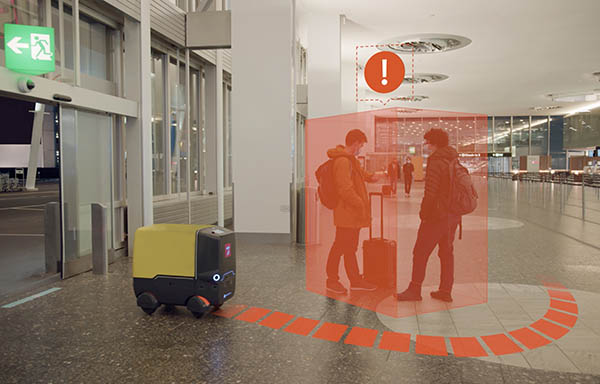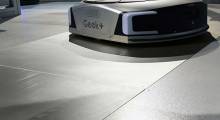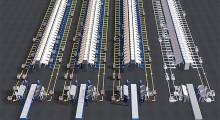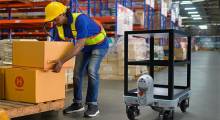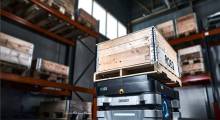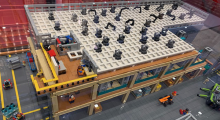ABB today said it is entering into a strategic partnership with Sevensense Robotics AG to enhance ABB’s new mobile robot offering with artificial intelligence and 3D vision mapping technology. The companies said their technology will allow robots to navigate autonomously in complex, dynamic indoor and outdoor environments close to people, providing customers “unprecedented levels of flexibility.”
ABB is also making a minority investment as part of Sevensense's $7.7 million Series A round through its ABB Technology Ventures unit that it expects to close by the end of this month. It added that the partnership is the next step in its strategy to drive the next generation of flexible automation and expand its portfolio. In July, the company acquired autonomous mobile robot (AMR) manufacturer ASTI Mobile Robotics.
“Building on our acquisition of ASTI Mobile Robotics earlier this year, our partnership with Sevensense is another milestone in our efforts to fully unlock flexible automation for our customers,” said Sami Atiya, president of ABB Robotics & Discrete Automation. “Integrating Sevensense’s AI and 3D mapping technology with our AMR offering will help accelerate the replacement of today’s linear production lines with fully flexible networks.”
“Our vision of the future workplace is one in which AMRs move materials, parts, and finished products between smart workstations in increasingly unstructured, dynamic work environments,” he added. ” Our partnership with Sevensense is an important step in realizing that vision.”
Sevensense develops 3D SLAM
Founded in 2018, Sevensense Robotics is a spinoff from ETH Zurich and received early support from Wyss Zurich. Headquartered in Zurich and the ETHZ Foundation in Switzerland, the startup employs 25 people. It offers industry-grade 3D simultaneous localization and mapping (SLAM)-based navigation for all kinds of autonomous service machines, from forklifts to professional cleaning machines.
Sevensense said it uses computer vision and AI algorithms to create 3D maps that are more accurate than what today’s 2D systems can produce. It also claimed its technology is more cost-effective than laser scanner-based navigation.
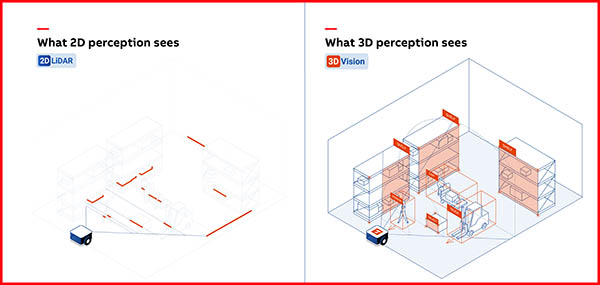
An AMR equipped with 3D SLAM will be able to accurately interpret its environment or identify a person, a pallet, or another robot, said the company. In addition, Sevensense said 3D SLAM allows robots to autonomously make decisions to navigate around these obstacles.
This level of intelligence will enable safer human-machine interactions and ensure flexible and efficient material flows around factories and warehouses for maximum productivity, said the company.
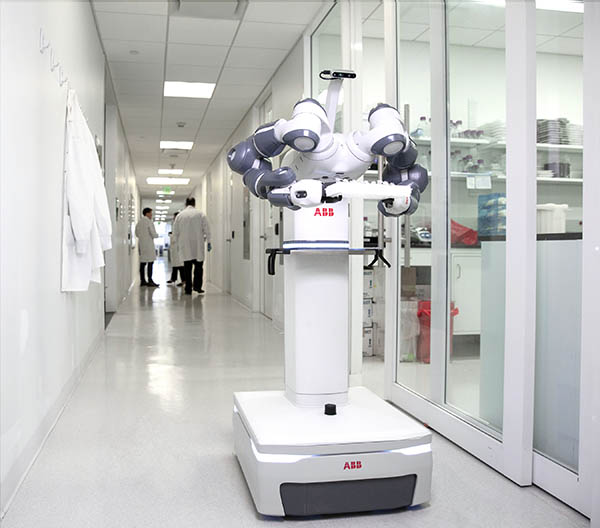
ABB plans AMR pilots
Sevensense participated in the 2021 ABB Robotics Innovation Challenge, which evaluated the performance of a range of visual SLAM systems from multiple global technology suppliers. ABB, which has about 150,000 employees in more than 100 countries, chose Sevensense as a partner after that challenge.
ABB said it will integrate Sevensense’s hardware and software into its AMR line, with pilot customer projects planned in 2022.
“This is a great step for us, coming at the right time,” said Gregory Hitz, CEO of Sevensense Robotics. “Partnering with ABB lays the foundation for a long-term collaboration, while retaining our complete independence as a business. It allows us to mutually benefit from our expertise and create the best product for all of our customers in the long run.”
“At the same time, the investment by ABB gives us planning security,” he said. “We are very much looking forward to lifting our technology to a global scale and establishing Sevensense at the top of AI-supported vision and navigation companies global.”
Article topics
Email Sign Up

